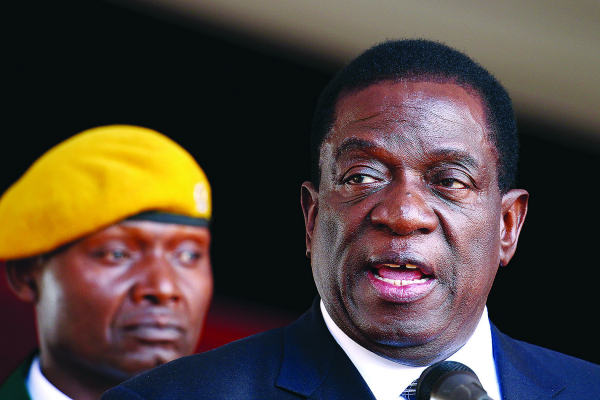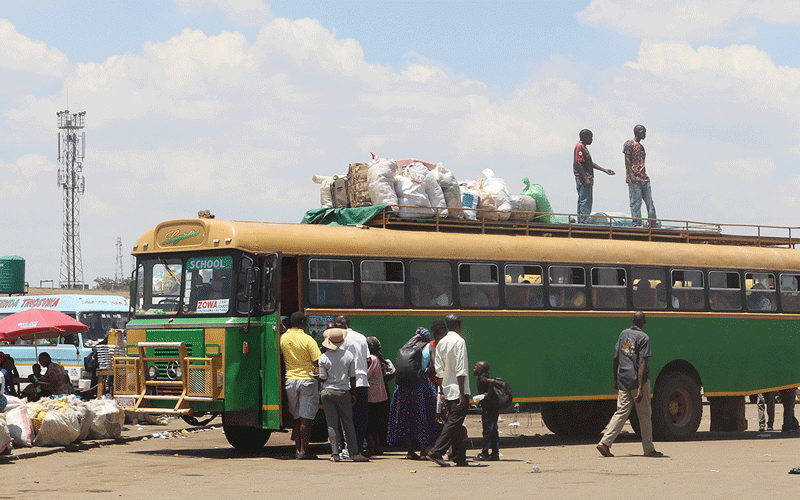
AS President Emmerson Mnangagwa continues to try and undo his predecessor Robert Mugabe’s political mess, it has emerged the new Zimbabwean leader is mulling a return to the Commonwealth club of former British colonies.
BY RICHARD CHIDZA
An angry Mugabe unilaterally pulled Zimbabwe out of the Commonwealth in 2003 after a decision to suspend his administration over accusations of human rights abuses centred around alleged electoral malpractices, violence and the land reform programme.
Mnangagwa took power following a military intervention last month, which forced Mugabe to resign after 37 years in power.
Foreign Affairs secretary Joey Bimha yesterday said a return could be on the cards “in the near future”.
“It is not a government priority at the moment, but it’s a possibility in the near future,” Bimha told NewsDay in an interview.
In his address to the Zanu PF extraordinary congress two weeks ago, Mnangagwa admitted Zimbabwe needed to worm its way back into the family of nations despite having been part of Mugabe’s government that was for nearly two decades ostracised from the international community.
“We realise that isolation is not splendid or viable, as there is more to gain through solidarity, mutually beneficial partnerships which, however, recognise our unique national interests,” Mnangagwa told party leaders amid applause.
- Chamisa under fire over US$120K donation
- Mavhunga puts DeMbare into Chibuku quarterfinals
- Pension funds bet on Cabora Bassa oilfields
- Councils defy govt fire tender directive
Keep Reading
He said his government would adopt a more pragmatic approach to international relations instead of the narrow and parochial “Look East” policy that had become the hallmark of Mugabe’s belligerent regime.
“Government will, thus, pursue a robust re-engagement process to fully affirm our belonging to the family of nations,” Mnangagwa said.
“The re-engagement process will seek to create new relations whilst holding steadfast to those countries that stood by us during our darkest years. In this regard, measures will be put in place to attract foreign investment and ensure that Zimbabwe is a place where capital feels safe.”
As a sign of his intentions to undo Mugabe’s decades-long damage, Mnangagwa has returned a few farms expropriated from white farmers and stopped fresh invasions.
The international community has taken a cautious approach to Mnangagwa’s administration with Britain in particular, indicating a willingness to “give him a chance”.
However, demands for a return to democracy and the rule of law remain, with Mnangagwa seemingly skirting these issues in all his pronouncements thus far except for declaring he wants to run a free and fair election next year.
British Foreign secretary Boris Johnson recently told the United Kingdom Parliament that the door remains open for Zimbabwe’s return as long as conditions around democracy and the respect of human rights are met.
“. . . I must caution him that several steps need to be done through before that can happen. There must be free and fair elections next year, it then falls to Zimbabwe to apply to the Commonwealth secretariat and then to make clear to the Commonwealth and to the world that Zimbabwe fulfils the criteria on human rights, on rule of law, on democracy, that are necessary for Commonwealth membership,” Johnson said.
Sports minister Kazembe Kazembe has indicated Zimbabwe could also return to the Commonwealth Games “soon”.
Zimbabweans benefited from scholarships during the country’s long stay as a member of the club of former British colonies until Mugabe pulled the plug.











